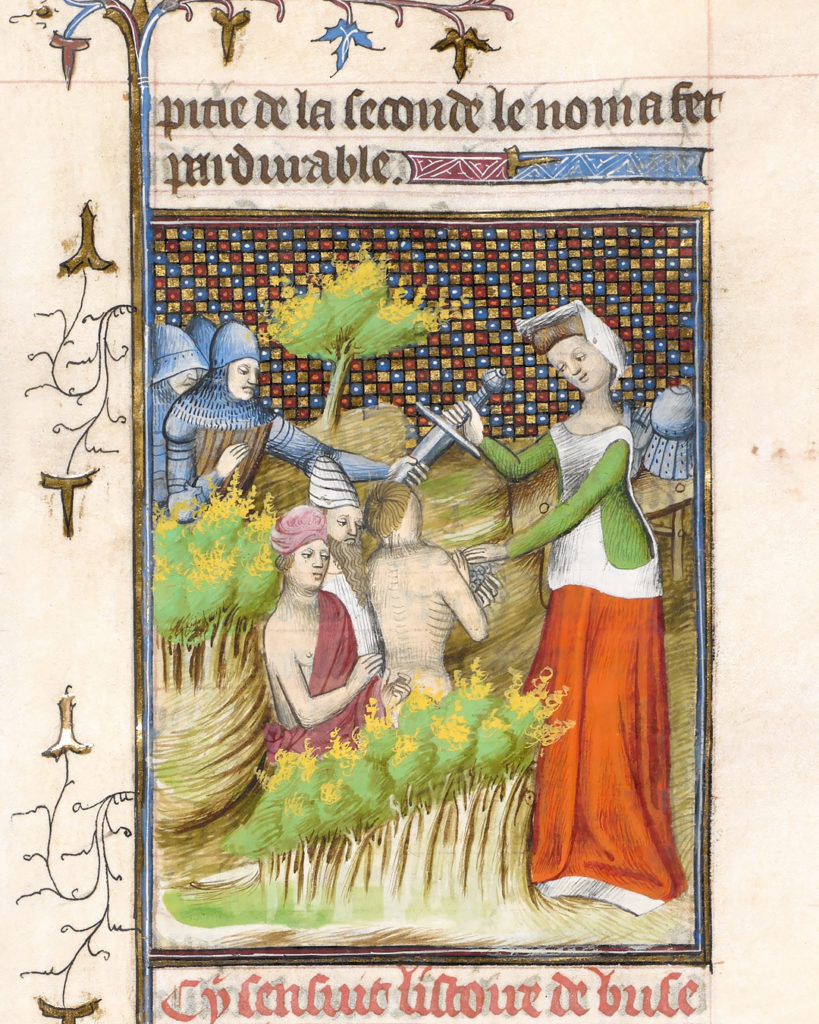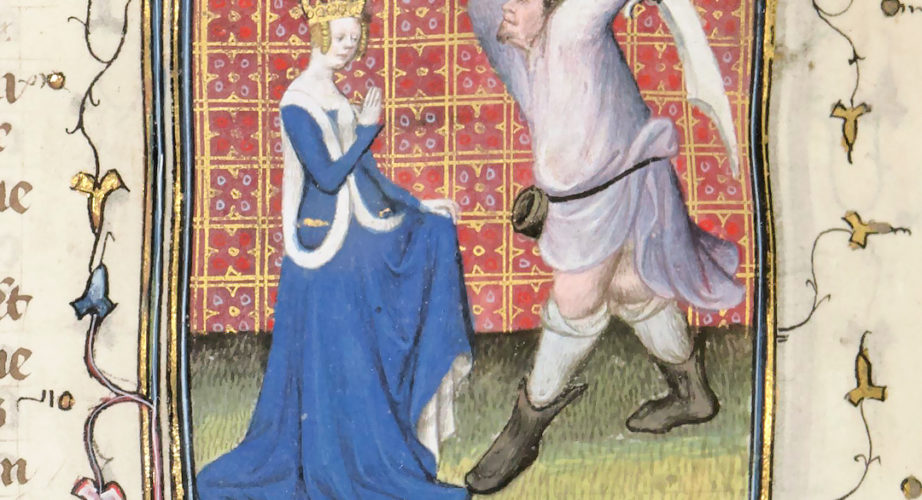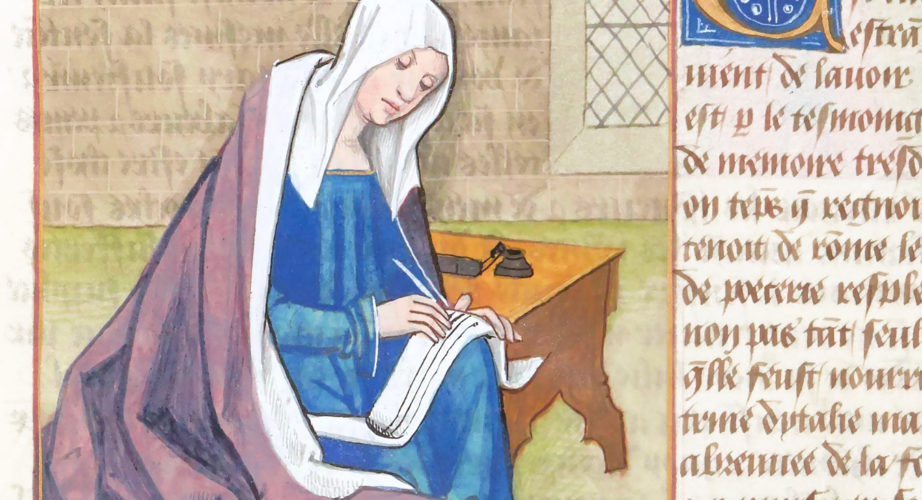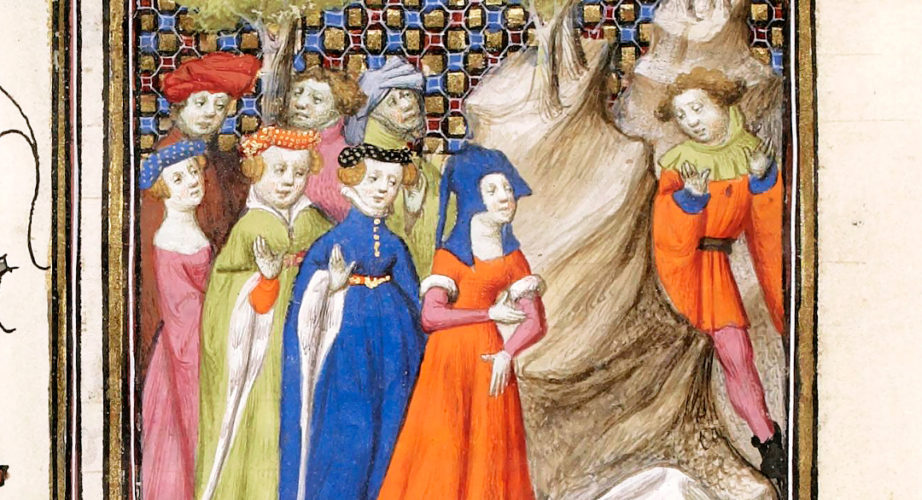Busa of Canosa

As we approach the last third of the De Mulieribus Claris, Boccaccio decides to report to us a prime example of solidarity that, unbeknownst even to him, would eventually forerun the institution of the Red Cross. Our guest today is Busa of Canosa!
Busa was a noblewoman of Canosa (or Canusium), in Apulia, who lived around 200BC. At the time, the Roman Empire was in the midst of the Second Punic War: Hannibal, the great Carthaginian general, had invaded Italy by passing through the Alps in the North and crossing the entire peninsula. In the spring of 216 BC, Hannibal initiated the Battle of Cannae and obliterated most of the Roman forces. The survivors, around 10,000 soldiers, managed to escape the bloodbath during the night and fled the nearby town of Canosa. Seeing so many men severely wounded and naked, most of the population was taken aback; Busa, instead, promptly decided to offer them food, clothes, weapons, and most importantly shelter. After looking for doctors and medical supplies, she helped taking care of the wounded in her own house and properties for many days and nights.
“Busa of Canosa”, illumination from the manuscript “Des cleres et nobles femmes”, ms. Royal 20 C V, f. 107r, 1st quarter of the 15th century, British Library, London.
Historically and mythologically speaking, being in a powerful position (and perhaps also a…
The time has finally come for the very first Women’s Wednesday of 2021!…
Welcome back to another Women’s Wednesday! Our weekly Mulier Clara, much like Sappho…


